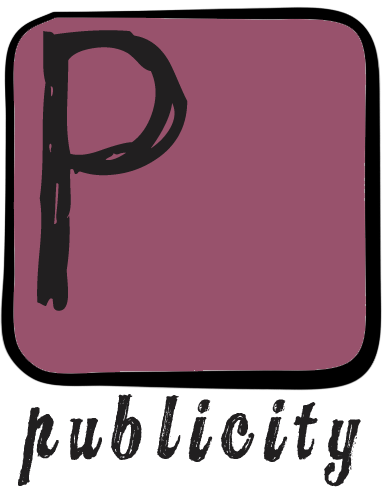It isn't just about rooms. It is also a question of whether the best writing takes place in a geographical location isolated from the hurly-burly of ordinary life. After all, writing is a solitary pursuit. Surely we need peace, serenity, quiet. Perhaps writing is at it's best when it reflects "emotion recollected in tranquillity" as William Wordsworth put it.
Against this view is another, quite opposite ideal--the notion that "real life," life in the raw, is what inspires writers. Some writers are convinced that their best work requires the energy, the vibrancy, even the chaos, of living in the city with intensity, even if it's on the margins of society. For these writers, being in the midst of life, messy, noisy, and crazy as it often is, stimulates the mind and emotions, gets the creative juices flowing. For these writers, too much quiet dulls the senses and the imagination.
I have to confess that I have vacillated between these two views for years.
On the one hand, I have envisioned myself in an idyllic setting, surrounded by trees, water, perhaps mountains. I write to the accompaniment of birdsong and a gurgling stream. No one disturbs my peace or my concentration. There is no telephone, no television set. I am free to create whatever comes to mind.
On the other hand, I have often imagined myself living in the heart of a big city where honking horns and screeching brakes are my accompaniment. A life lived with the intensity of people coming in and out of my space has sometimes seemed to me the best stimulator of creativity.
The truth is, I have never spent much time in either type of environment. My adult life has been lived in small college cities--Syracuse, New York, Madison, Wisconsin, San Luis Obispo, California.
Over Valentine's Day, my guy, Rufus, and I went to Catalina Island. Catalina is one of the Channel Islands off the coast of California. It once belonged to the Wrigley family of chewing gum fame. It boasts the lovely and tiny town of Avalon where no one drives cars, only golf carts. The whole rest of the island is unspoiled, mountainous land owned by a land conservancy. No houses. No developments. It is beautiful and very quiet.
We were charmed by the island. Here is a picture of us standing by the water.
I immediately began to fantasize about finding a peaceful retreat on the island where I could write.
Rufus thought it would be an ideal place to paint.
The thing is, within twenty-four hours, we realized the town was TOO quiet. What would we do for movies? For shopping? For concerts and other kinds of entertainment? Beautiful it might be, but we're used to a certain amount of stimulation.
Here's the truth about finding the perfect place to write: THERE IS NO SUCH THING!
Reality is, if we want to write, we will write wherever we find ourselves. Looking for the perfect environment is just a way to procrastinate.
We live where we have found work or where our families have settled or where we went to school. If we're writers, we'll write. If we're only fantasizing about being writers, we'll find a million excuses for not writing.
Against this view is another, quite opposite ideal--the notion that "real life," life in the raw, is what inspires writers. Some writers are convinced that their best work requires the energy, the vibrancy, even the chaos, of living in the city with intensity, even if it's on the margins of society. For these writers, being in the midst of life, messy, noisy, and crazy as it often is, stimulates the mind and emotions, gets the creative juices flowing. For these writers, too much quiet dulls the senses and the imagination.
I have to confess that I have vacillated between these two views for years.
On the one hand, I have envisioned myself in an idyllic setting, surrounded by trees, water, perhaps mountains. I write to the accompaniment of birdsong and a gurgling stream. No one disturbs my peace or my concentration. There is no telephone, no television set. I am free to create whatever comes to mind.
On the other hand, I have often imagined myself living in the heart of a big city where honking horns and screeching brakes are my accompaniment. A life lived with the intensity of people coming in and out of my space has sometimes seemed to me the best stimulator of creativity.
The truth is, I have never spent much time in either type of environment. My adult life has been lived in small college cities--Syracuse, New York, Madison, Wisconsin, San Luis Obispo, California.
Over Valentine's Day, my guy, Rufus, and I went to Catalina Island. Catalina is one of the Channel Islands off the coast of California. It once belonged to the Wrigley family of chewing gum fame. It boasts the lovely and tiny town of Avalon where no one drives cars, only golf carts. The whole rest of the island is unspoiled, mountainous land owned by a land conservancy. No houses. No developments. It is beautiful and very quiet.
We were charmed by the island. Here is a picture of us standing by the water.
I immediately began to fantasize about finding a peaceful retreat on the island where I could write.
Rufus thought it would be an ideal place to paint.
The thing is, within twenty-four hours, we realized the town was TOO quiet. What would we do for movies? For shopping? For concerts and other kinds of entertainment? Beautiful it might be, but we're used to a certain amount of stimulation.
Here's the truth about finding the perfect place to write: THERE IS NO SUCH THING!
Reality is, if we want to write, we will write wherever we find ourselves. Looking for the perfect environment is just a way to procrastinate.
We live where we have found work or where our families have settled or where we went to school. If we're writers, we'll write. If we're only fantasizing about being writers, we'll find a million excuses for not writing.







